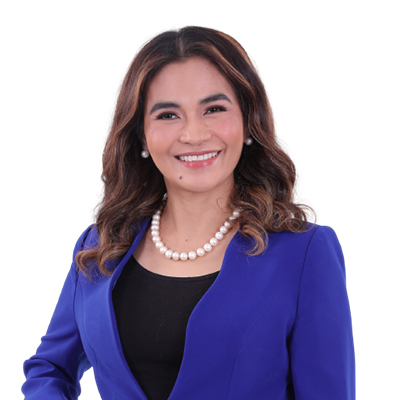Ten hours and 27 minutes. This is the average time Filipinos aged 16 to 64 years old spend browsing the internet and staying online. Social media management firm Hootsuite and creative agency We Are Social’s Digital 2022 Global Overview Report reveals that Filipinos are among those who spend the longest time connected online.
The results of the report are not surprising. It is not hard to find someone busy tapping on his or her phone in a bustling street in the Philippines. When we are not messaging our friends and family, we resort to taking videos for upload on TikTok or taking snapshots of our food to add to our well-curated Instagram feed. These scenarios became more commonplace when the pandemic hit. We relied heavily on mobile apps to transfer money, pay bills, and have our food cravings satisfied. No surprise there. Probably, the better question to ask is: Really? Just 10 hours? Based on what we see, it does seem like Filipinos spend more than 10 hours online daily.
While the proliferation of reliable mobile apps and the ease in getting connected to the world wide web provide many benefits, they also unlock doors to online bashing and data security issues. One of the more harmful but often overlooked effects of going digital is misinformation and in many cases, disinformation, in the form of fake news or false content.
Misinformation vs. disinformation
To shed light on the harmful impact of misinformation and disinformation, UP Professor Fatima Gaw differentiated these two concepts at a session I co-chaired during PICPA’s Accountancy Week Celebration.
As cited by Professor Gaw, Victoria Rubin in her research paper/journal refers to misinformation as the act of providing inaccurate information, while disinformation occurs when one intentionally shares deceptive and often manipulative data. The key difference is intention. We may spread false information because we fail to fact-check the accuracy of data, but knowingly spreading information which we know is false is a wholly different matter and one considered far more dangerous.
Spotting misinformation, disinformation
The types of mis- and disinformation are really hard to spot. These include making false connections, or when headlines or social media captions are different from what the main material contains, and sharing manipulated content with the intent to deceive. That satirical article or that video you just finished watching? It may have been shared without any intention to fool you, but it may contain incorrect data that can easily sway you into believing these data are factual.
To expound on these gray areas, Professor Gaw introduced what she termed the “sandwich strategy” often utilized to slyly conceal mis- and disinformation. This happens when misleading or distorted information is squeezed between factual information to give the false notion that the whole content is factual.
Half the time, without realizing it, we tend to believe uncorroborated information posted by our favorite influencers and even parody accounts. What we fail to take into account is that our go-to social media accounts where we get our daily dose of fun content may be managed by those who are paid to share biased posts in support of their clients. Tip: be wary of paid trolls. They lurk everywhere.
Upholding accountability
A 2022 Social Weather Stations (SWS) survey showed that 69 percent of Filipinos describe the spread of fake news as a serious issue, with 32 percent of respondents adding that fake news shared by media is a “very serious” concern. The same survey also revealed another pressing issue: 51 percent of Filipinos admitted they find it hard to spot fake news.
The proliferation of distorted data does not just affect private citizens; businesses can also be the victim of false information. In the field of accounting and audit, a profession which relies heavily on facts and figures to come up with accurate audit and financial reports, the effects of disinformation and misinformation are more apparent and much more critical.
As the world goes digital, auditing firms are faced with a dilemma: shift toward digital transformation or be left behind by competitors. The answer is simple – go digital too. But along with this choice comes risks posed by cybersecurity and falling prey to disinformation and misinformation.
Considering all the harmful effects of disinformation, knowing is not enough. Concrete action is needed.
Help institute transparency, make room for checks and balances
As the government ramps up its effort to combat the spread of false information, professional organizations and the private sector can also help in this fight by putting within their organizational frameworks policies that promote transparency and accountability when it comes to sharing and use of data. This will help instill a mindset of accountability that members of these organizations can imbibe even in their dealings outside the organization. This is where firms offering cybersecurity and other digital services come in. There are companies that, aside from offering their main products, also have automation, shared service, and data security services for their clients. Hence, it is a wise option to ask service providers if they can likewise provide these solutions.
For accountants in the public sector, finding new ways to institute checks and balances in their agencies is also helpful. By doing this, citizens’ need for a more accountable government will be addressed. In the process, by making sure that all information released by our agency is correct and well-researched, we help reduce instances of sharing of fake news or misleading content.
Contributing to disinformation and misinformation is a clear affront to democracy. While we have every right to express our opinions, with this right comes the duty to not trample on the right of others to receive truthful information.
Curbing widespread sharing of false information, as well as ensuring that our society does not become an environment marred by disinformation and misinformation, does not just fall on the shoulder of the government. Citizens, the private sector, and socio-civic and professional organizations must also take an active part in this noble cause.
As published in The Manila Times, dated 27 July 2022




